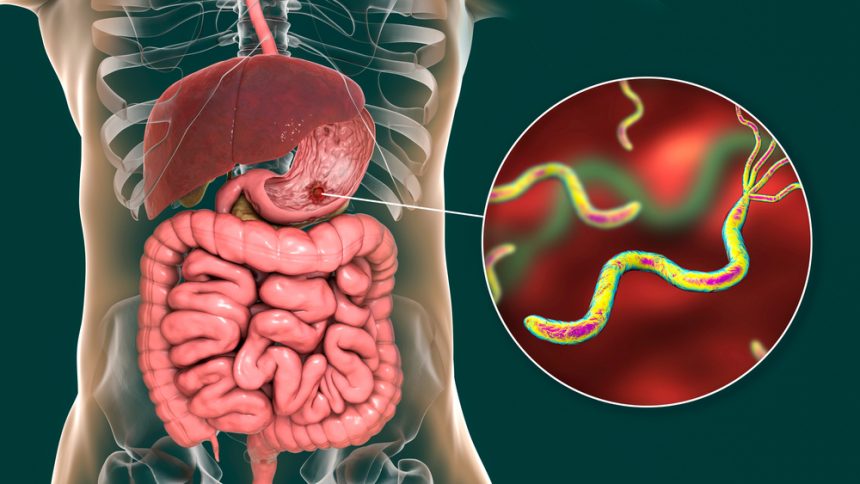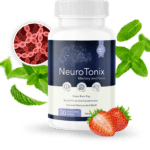What are stomach ulcers?
Stomach ulcers are caused by a bacterium called Helicobacter pylori. The bacterium lives in the mucous lining of the stomach and small intestine. Using stomach acids as an energy source, the bacterium produces urease, an enzyme that helps it sneak into cells. Once inside cells, the bacterium produces urease, which breaks down urea into ammonia and carbon dioxide, producing acid.
Stomach acid is strong enough to dissolve the mucous lining and some stomach cells. This allows the bacterium to access the body’s bloodstream, where it can harm other cells throughout the body.
Ulcers develop when the stomach is unable to repair damage caused by the bacterium. Stomach ulcers usually develop slowly. As a result, most people don’t even realize that they have them until they experience severe stomach pain and nausea. Ulcers can heal on their own, but treatment is usually recommended.
What causes stomach ulcers?
There are many causes for stomach ulcers, including:
Acid reflux: Acid reflux is a condition in which the acid from the stomach backs up into the esophagus. It can be caused by overeating, spicy food, and other substances.
Overuse of nonsteroidal anti-inflammatory drugs: Overuse of nonsteroidal anti-inflammatory drugs, such as aspirin, ibuprofen, naproxen, and others, can cause stomach ulcers.
Helicobacter pylori infection: Helicobacter pylori, or H. pylori, is a bacterium that causes ulcers in the stomach and small intestine.
Smoking: Smoking can also contribute to stomach ulcers.
What are the symptoms of stomach ulcers?
Symptoms of stomach ulcers can vary, but they generally include pain and discomfort in the stomach area, stomach pain, bloating, nausea, vomiting, and heartburn. There may be traces of blood in your stool or vomit. Your pain may be constant or intermittent.
In some cases, ulcers may also cause blood in the stool or abdominal cramps. If you notice any of these symptoms, it is important to see a doctor as soon as possible.
Ulcers can be caused by various factors, including diet, stress, and infection. If you are experiencing any of the symptoms listed above, it is important to seek medical attention as soon as possible. A physician can diagnose ulcers and prescribe the appropriate treatment.
What treatments are available for stomach ulcers?
If you have stomach ulcers, there are several treatment options available. The type of treatment that you choose will depend on the severity of the ulcer(s), your overall health condition, and your preferences.
Options for Treating Stomach Ulcers:
Antacids: Antacids can help neutralize the acid that is causing the ulcer. Antacids come in liquid or pill form. You may need to take them regularly, and they shouldn’t be taken if your stomach is empty. You may also need to avoid taking these with other medicines or foods that contain magnesium or other minerals that can reduce the acid-neutralizing effects.
H2 Blockers: H2 blockers can block the production of acid in your stomach. H2 blockers come in pill form, and they may be taken with food.
Proton Pump Inhibitors: Proton pump inhibitors (PPIs) can block the production of acid in your stomach. PPIs can be taken with food, and they need to be taken regularly.
Bismuth Subsalicylate: Bismuth subsalicylate coats the stomach and can protect it from further acid damage. It can come in the form of tablets, liquids, or suppositories.
Peptic Ulcer Medications: Peptic ulcer medications include medications for ulcers that are in the small intestine. These medications can reduce the number of acid-producing cells in your stomach. These medications are taken regularly. One example of this type of medication is omeprazole.
Antibiotics: Antibiotics can help treat ulcers that are in the stomach. Antibiotics are taken regularly, and they typically need to be taken over several weeks.
Antihistamines: Antihistamines are medications used to reduce acid production in the stomach. They can be taken in pill form or as a liquid. Some antihistamines may need to be taken with food.
Vitamin Supplements: Taking vitamin supplements, such as vitamin B12, can help remedy stomach ulcers.
How to treat stomach ulcers with home remedies.
Home remedies for stomach ulcers naturally are the first and most important step. Your stomach produces stomach acid, which is essential for digestion. The acids help break down food into small pieces. The acidity of the stomach helps kill harmful bacteria.
Stomach ulcers occur when the acid in our stomachs is abnormally high. This imbalance can be caused by stress, spicy food, certain medications, or Helicobacter pylori bacteria. The bacteria can inflame the lining of the stomach known as the mucosa.
Stomach ulcers can be treated naturally at home and you can start by taking over-the-counter medications to reduce any pain and nausea. You may try antacids, anti-gas pills, or laxatives. These medications may also help reduce nausea.
If over-the-counter medications do not relieve your symptoms, you should visit your doctor. The doctor may prescribe medications that reduce or eliminate stomach acid production. These medications include H2 blockers and proton pump inhibitors.
What can patients do to prevent stomach ulcers?
Patients can help prevent stomach ulcers by eating a healthy, low-fat diet. Foods that are high in fatty and greasy foods can also contribute to the development of ulcers. Patients should drink lots of water and abstain from smoking.
Patients should also remember to keep stress to a minimum. People who lead stressful lives tend to have an increased chance of developing stomach ulcers. Patients should relax and find time for themself each day.
Some patients can reduce their risk of developing stomach ulcers by taking some medications. Patients who rely on Heparin or Coumadin to prevent blood clots should also remember that these medications can have a detrimental effect on the lining of the stomach and intestines. Patients should talk to their doctor before taking any medications since some medications can increase a patient’s risk of developing stomach ulcers.
Patients should take a probiotic supplement each day. This will help with digestion and help replenish beneficial bacteria in the stomach that can become depleted from poor diet, antibiotics, stress, and medication.
Conclusion
In conclusion, ulcers are a common occurrence, and they are usually treatable. However, if not treated they could result in complications.
Ulcers are usually caused by stress or spicy foods. In today’s world, stress is unavoidable, and usually comes hand in hand with eating food. Therefore, the two are closely linked. If stress is the cause of your ulcer, try finding a way to relieve it. If spicy foods are the cause, try eating less spicy or spicy foods. Examine your diet, find the source of the ulcer and do your best to get rid of it.






















